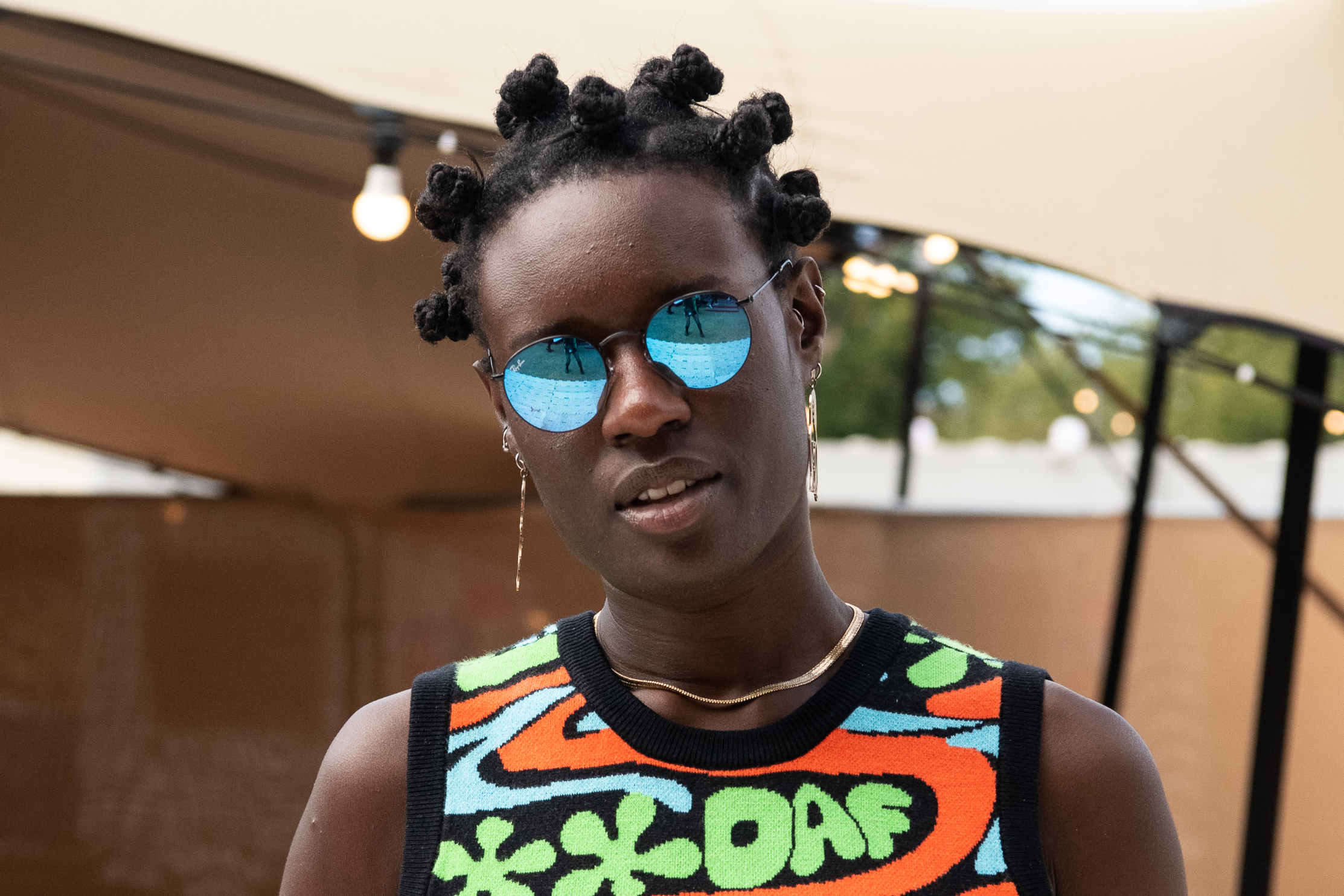
Although there have always been exceptions, up until fairly recently the standard music business album release cycle was to drip feed some singles, release the album, tour it for two or three years, then repeat.
But nothing is static in this industry, and streaming and social media have had a huge impact on how and when artists release their music. Look at Sault, for example, releasing five albums for free in November 2022, or DJ/producer Paul Woolford under his Special Request guise dropping three albums in a single year in 2021. And in February of this year, DJ/producer Kerri Chandler gave away seventy three remixes, edits and originals to commemorate his late father’s birthday. This is not the music industry as we used to know it.
"The reality is that albums are not viable unless you’re signed to a label that will pump money into your release campaign"
So does this mean that the traditional single-album-tour-repeat cycle is finished? And what might this mean for the album itself? Bassist, DJ and producer Marla Kether has provided her bass-playing prowess to artists like Yazmin Lacey and Loyle Carner as well as releasing her own productions and remixes, and for her, albums bring their own particular challenges: “Albums aren’t really viable for independent artists!” she told us.
“So much thought, time, work and money goes into an album. It’s not just the studio costs: albums are usually accompanied by a huge rollout campaign, headline shows, maybe even physical releases. The reality is that albums are not viable unless you’re signed to a label that will pump money into your release campaign.”
Singer, songwriter, musician, DJ and producer HiFi Sean (Sean Dickson) has released music at all levels, from his multi-million selling band The Soup Dragons, his critically acclaimed outfit The High Fidelity, his recent album with David McAlmont, to numerous HiFi Sean releases and remixes, and told us: “Being a self-released or independent artist is beyond difficult these days due to the major conglomerate firms who suck up all airspace on every portal leaving very little shards of light for us all to be even heard these days.”

Clearly, major artists have more options than independent artists when it comes to how and when they release their work. Guitarist and composer Hayden Pedigo recently posted on Instagram how inspired he was by Frank Ocean taking seven years to release an album, but pointed out that while “great work takes time”, that time simply isn’t available to smaller artists, who risk being forgotten by fans or losing relevancy - and therefore income - if they pause.
"Instead of releasing an album, artists now release one track each month to keep the attention of the listener"
Producer, DJ, label and record store owner Cinthie runs her 803 Crystal Grooves and we_r house imprints, as well as the much-loved Elevate Berlin record shop. She’s released an extensive discography of house, techno and assorted electronic genres and put out her debut album Skylines in 2020. From her position, both as an artist and from behind the shop counter, she recognises the importance of staying visible: “Nowadays it’s more important for artists to have a consistent release plan because we all need to get attention from followers. So instead of releasing an album, artists now release one track each month to keep the attention of the listener.”

Recording artist, musician, songwriter, and community activist MIRI removed her music from Spotify due to ethical concerns about their business practices and their artist remuneration, and now releases her music via Bandcamp, Sonstream and Resonate.
Like all our contributors, MIRI spoke about the pressure to remain present in her follower’s feeds, and also concurs that larger artists have a freedom regarding their release schedules that simply isn’t available to independent artists: “I read that Adele once said, ‘I chose to reject the scarcity of success and the idea that you have to be constantly relevant to be successful’,” MIRI told us, “and I like this quote a lot. However, for an artist like myself (and I'm sure many others) I would need to be recording and releasing music every few months to keep building momentum for press and fans. That's not going to happen right now as I don't have the resources, financial backing or the mental capacity.”
Adele once said, ‘I chose to reject the scarcity of success and the idea that you have to be constantly relevant to be successful’
Momentum around a new artist, album or tour has always been key in the industry, but the sheer quantity of new music - there are an estimated 120,000 new tracks released on streaming services every day - is driving artists to stay continually visible online or else risk losing that precious momentum. And while ad campaigns or high-profile media placement might be an option for major artists, for everyone else, Instagram, TikTok, Twitter, YouTube, Soundcloud, Facebook etc. are where artists are going to promote their music via content creation.

The irony of course is that an artist may fear losing their audience if they take their time over their music, but they then have less time to make that music because they’re spending so much time making content to promote it. Marla: “Many artists think they need to pump out content using their music in a bid to “stay relevant”, when in reality it’d be beneficial to redirect that energy into working on more music! Trust that your audience enjoys your music enough for it to stay pertinent, even if you decide not to post for like a week.
“I actually saw this TikTok discussing how detrimental the shift to artists having the onus of marketing their music hoisted upon them has been to the quality of music itself. Would Fleetwood Mac have been able to create Rumours if they were having to spend all their time trying to make content?”
"Would Fleetwood Mac have been able to create Rumours if they were having to spend all their time trying to make content?"
MIRI notes that the pressure to keep up and be noticed takes place at both the micro and the macro level. You have to grab people's attention and hook them straight in with your content to direct them towards your music, which then also has to instantly grab their attention and hook them in too: “Now it feels more about grabbing people's attention with a single and making sure that the audience is hooked within the first few seconds. As artists, social media has given us other ways beyond music to connect with our audiences which on one hand feels great but on the other, it feels like the music takes a backseat.”
Sean also sees an issue of quality control: “It really concerns me when you learn of stats like 45.6 million tracks on Spotify in 2023 have not even had one stream. Where has the quality control gone from the artists themselves? To make an album you throw yourself into a cycle of a few years of your life to make something that is a piece of work that you can have pride in and that represents you fully as an artist.”
Sean argues that this drop in artist quality control is linked to the general perception of music as a free commodity. “Is it that making music is now about you just making something and sticking it up online… because you can?” he continued. “This has become the issue with music these days - that music is just a button you press and you get for free.”
The devaluation of music since the arrival of digital is a now-familiar theme but its familiarity shouldn’t blind us to its relevance. The move to streaming, from an ownership to an access model, has proved profitable for ‘the industry’ - i.e.: major labels and the streaming platforms - but it also resulted in a reduction in smaller artists/rights holder’s income compared to physical products, together with a huge increase in released music, and a corresponding decrease in its perceived value.
"The brainwashing worked and now people think music is free"
Cinthie: “As our attention span gets shorter and shorter, I feel like you have to feed your streaming platform with constant new music. Back in the day you could really tour with a good album for two years. At the moment it feels like you only get the attention for two weeks and then the crowd is screaming for new music. It reminds me of the recent statement by James Blake: “The brainwashing worked and now people think music is free.” MIRI tells a similar tale: “As music can now be accessed for free there can sometimes feel a lack of value for our art and an expectancy to hand it over for no cost.”
While the traditional single-album-tour-repeat model is too expensive, too risky, or simply not practical for many independent artists, there doesn’t seem to be a single new model emerging. The campaign for user-centric royalties from streaming platforms (where subscription royalties go only to artists that subscribers listen to, rather than the current pro rata model where royalties go into a central pool split by overall share of all the streams on the platform) could have a substantial impact for many independent artists.
The pro rata model is widely believed to favour larger artists who have more streams, so the introduction of a user-centric model could perhaps upturn the industry again, but this time in favour of some of the smaller artists and songwriters. And there are other tweaks to the current system that could benefit independent and mid-range artists. Sean: “Playlists are so genre specific and never cater for the adventurer… I’d like to see fully independent specific playlists on all streaming sites and way more support from these huge companies who make it such a very tough and challenging environment just to survive.”
"People want to lose themselves in a full hour of an artist's work, that will never change"
The current moment feels like a transitional stage where the majors and streaming platforms may be content with the status quo but many performers, artists and songwriters aren’t, and are having to navigate the ever-changing promotional terrain, trying to make parts of the system work to their advantage. Cinthie uses her socials to promote her new releases and for audience feedback: “I feel that good content on your socials is getting more and more important - crazy times, I know - but it’s also good because you can tease a good track, and also for the album you can choose the ones that are getting the best reaction after the teaser video.”
Marla’s approach, like most independent artists now, involves huge amounts of non-music related promotional work: “I had the budget to drip feed 5 singles throughout the year, with the final one coinciding with the EP. This allowed me to create promo materials for each single in the form of press shots, Spotify canvases, visuals for TikTok and IG reels, and have more focused press releases. A ridiculous amount of music is added to Spotify every day and social media is inundated with artists promoting their music; naturally you want assets that will make you stand out.”

And in the absence of a coherent new model, vinyl is still an option for some artists, including Cinthie, who told us: “Nowadays everything is mostly concentrated on the streaming and download platforms, but for me as an artist who is also selling on vinyl, the old model works best for me.” Sean too remains committed to the physical medium: “Vinyl has made a resurgence due to this constant trying to rethink the model. People want albums, people want to lose themselves in a full hour of an artist's work, that will never change. No scrolling, no pausing, just an escape for an hour or so - the physical art form. When there is a new model it is always based on profit and not on art. Wouldn’t it be great for once it was not so?”
"Albums give you a story! Singles don’t let you illustrate a coherent journey the way albums do"
What’s interesting is that despite the continuing challenges acknowledged by all our contributors, they all remain committed to the value of the album as an art form. “Albums offer the whole of an artist,” MIRI told us, “they allow you to invest in that artist's process as well as connect your own feelings and experiences to their stories”, and Marla had a similar view: “Albums give you a story! Singles don’t let you illustrate a coherent journey the way albums do. It’s why Adele campaigned to remove the ‘Shuffle’ option when she released her most recent album, right?”
Cinthie told us: “You get a whole spectrum of what an artist is able to do music-wise… on an album you can show also a different side of yourself, or really show what you can do in the studio”, while for Sean, albums offer us as music-makers and listeners something that singles simply can’t: “The artists' soul and your undivided attention."








